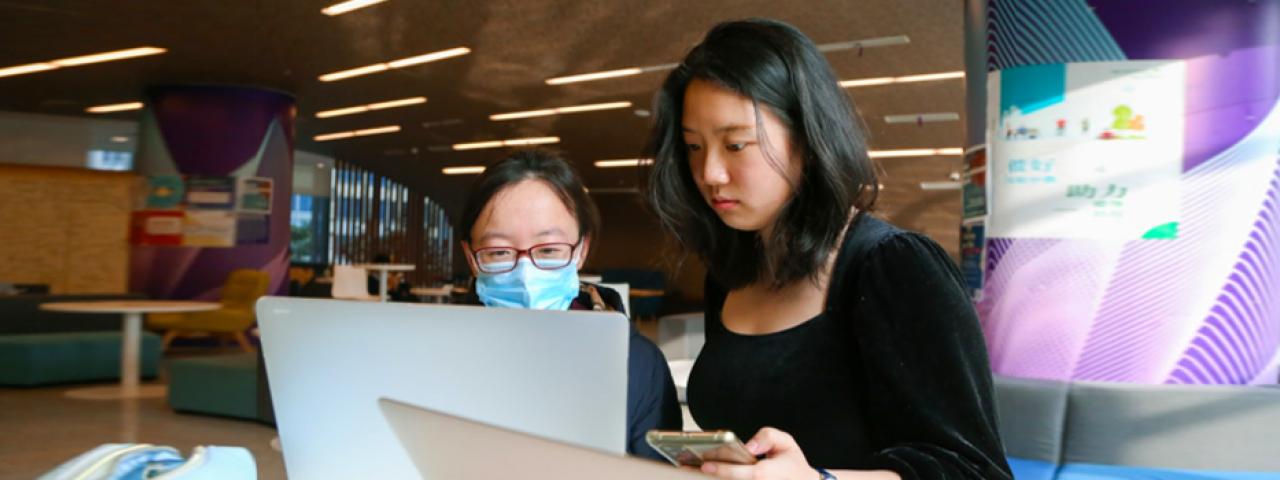
The NYU Shanghai community has been behind masks for a year now. It’s a protocol that has affected so many aspects of campus life-—from how classes are conducted, how friends interact, how students exercise. But with no new suspected cases in Shanghai, and no resurgence of coronavirus taking place in China after the Spring Festival season, there’s been room to adjust the campus policy.
Following in the footsteps of other Shanghai universities, our community has been given permission to spend the remainder of the semester in a new mode: ‘masks optional but strongly recommended.’ We spoke with students, faculty, and staff around campus about how they felt towards this update.
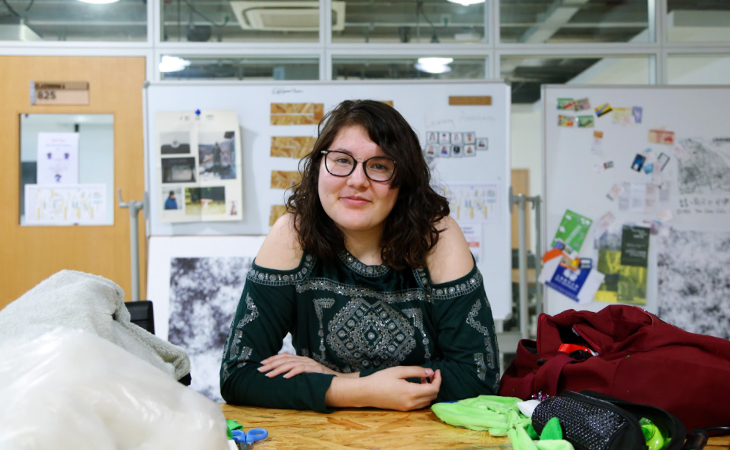
“It’s really nice being able to see my friends’ faces for the first time in a year. I can finally recognize my classmates, and it almost feels like there is a barrier removed from making new friends. While I still think they are necessary in crowded spaces, it’s nice to be able to relax.” - Luna Lopez ’23
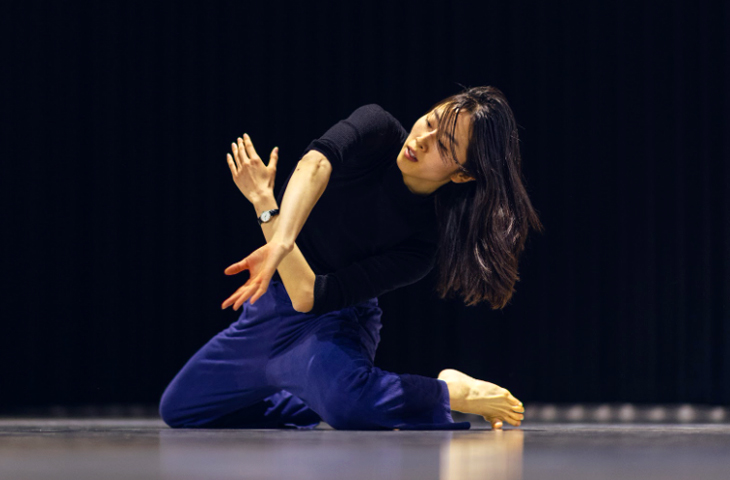
“The first day that my students and I removed our masks to dance, we felt a bit strange, since we’d grown used to wearing masks or plastic face shields for almost a year. Now they come into class, remove their masks, and feel more free to move. This semester, they are learning dances by an ethnic group in Southern China that involves a lot of rigorous head movement—the girls would always be holding the masks to their faces, and I was worried about how it might affect their performance. Before, with masks on, I think they held in their expressions. It’s not about just smiling or looking sad but about having an inner awareness about your body, your intentions. Without masks, I feel they’re more focused.” -Tao Siye, Assistant Arts Professor at NYU Shanghai
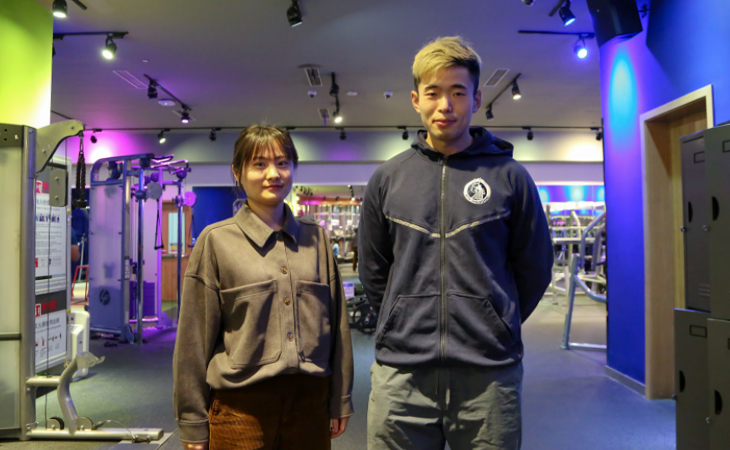
“We’re excited that cardio machines are back up and running again at the Fitness Center, and now students aren’t required to wear a mask while working out. We were also able to extend our capacity to 19 students allowed in the Center per workout session and five students in the Fitness Studio. We’ll see how it goes for now; if it goes well, we might have a chance to return back to normal and bring back our team sports!” - Nicole Wu, Senior Athletics Program Coordinator and Mark Kang, Athletic Trainer & Conditioning Coach
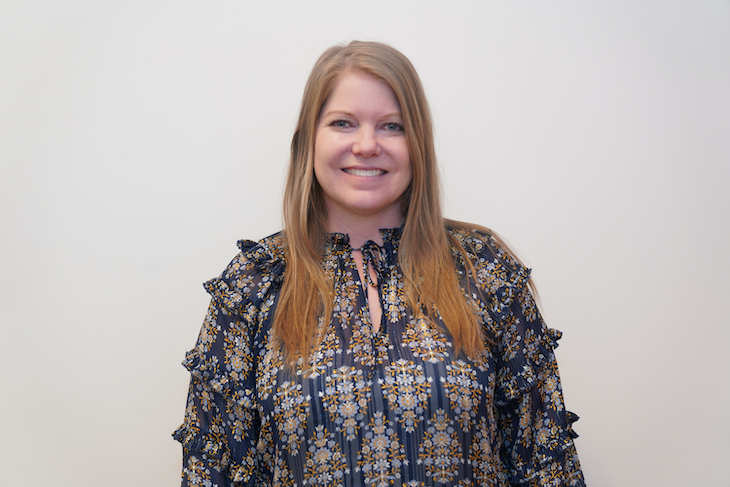
“Teaching singing with masks on was challenging. It was necessary and important because of not spreading COVID-19, but as far as singing with masks on goes, it’s not good for your voice, and it’s not ideal especially if you’re singing for long periods of time. We provided students with clear masks—not face shields, but the ones that go under the chin—so I could see that they were using proper technique. It gave me an idea as their teacher, to know whether they knew the music and whether they were doing healthy singing. Now that masks are optional, it’s like my students have come alive. They don’t feel as impaired. And part of that is because wearing the masks was a physical hindrance on them moving their jaw and mouth when they sang. So I think they’re really just excited to be free of the physical barrier on their face. It’s been hugely helpful for their own physical health and singing. I’ve definitely seen a change in the last few weeks in their stamina, how excited and engaged they are, and just their focus is different.” - Katherine Girvin, Clinical Assistant Professor of Arts
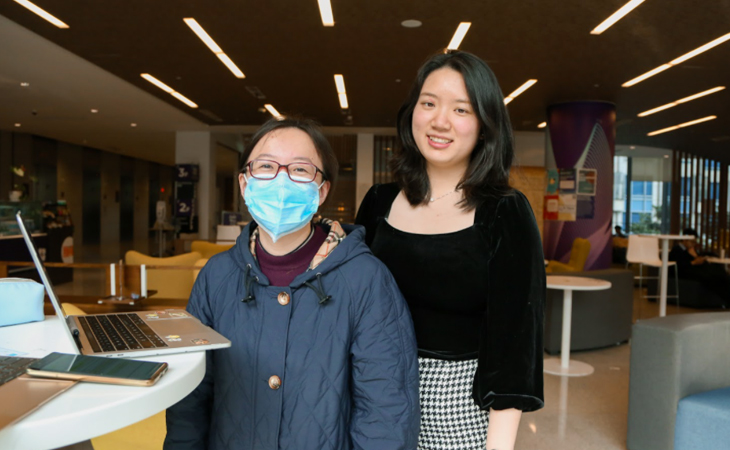
Yijun Zhang '23 and Tracey Lan '22
“It’s a great option for us to not wear a mask, but sometimes I still feel kind of weird if other people are wearing masks and I don’t. But it feels better in general.” - Tracey Lan ’22
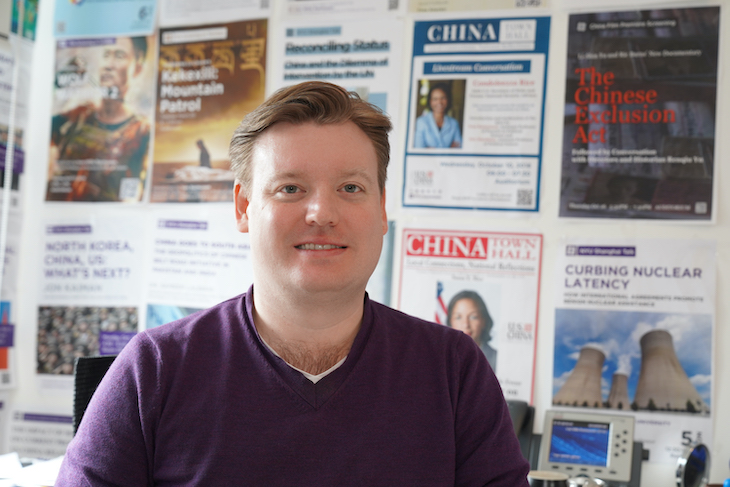
“I’m teaching a class in political science where we are looking at spontaneous social movements—it’s a small seminar class and there are only about 10 students. All of a sudden I realize, ‘Wait a second, some of them are no longer wearing their masks or are taking off their masks.’ On our break, I look at my email and see that this isn’t a spontaneous movement, it’s actually a new policy—which for me, is pretty exciting. We want to be safe and conscientious, but at the same time having the mask creates a challenge in terms of instruction and reading people whenever you’re interacting, especially in a small seminar environment. You want to be able to read the students’ reactions to whatever you’re talking about, discussing and debating. It also showcases the diligence we’ve had. I think at the beginning, it was a bit of a challenge when everybody on the outside was walking around with either no mask on or very few masks, or doing the masks as a chinstrap—meanwhile on campus we had to be taking it very seriously. For me it’s an exciting development; it was a funny story that all of a sudden we had this spontaneous movement right in the middle of everyone studying spontaneous movements, which turned out to be not very spontaneous after all.” -Ivan Rasmussen, Assistant Professor of Practice in Political Science
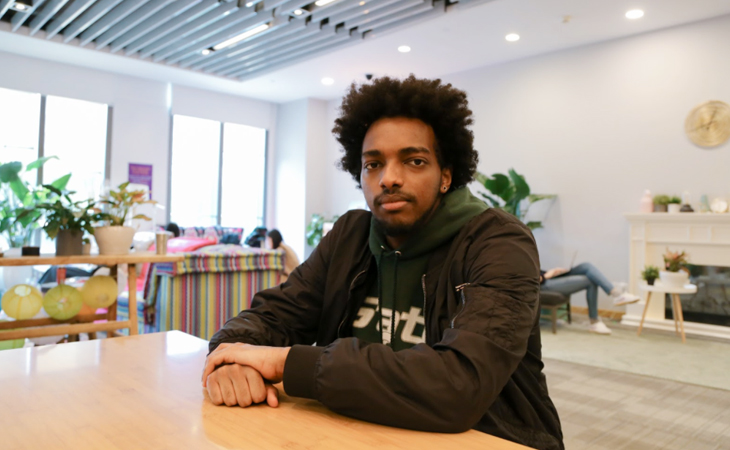
“I think wearing a mask is good when you’re sick. If I get sick or have a cough, I’d wear a mask. But right now I don’t need to, so I take it off.” -Malachi Daniel ’23
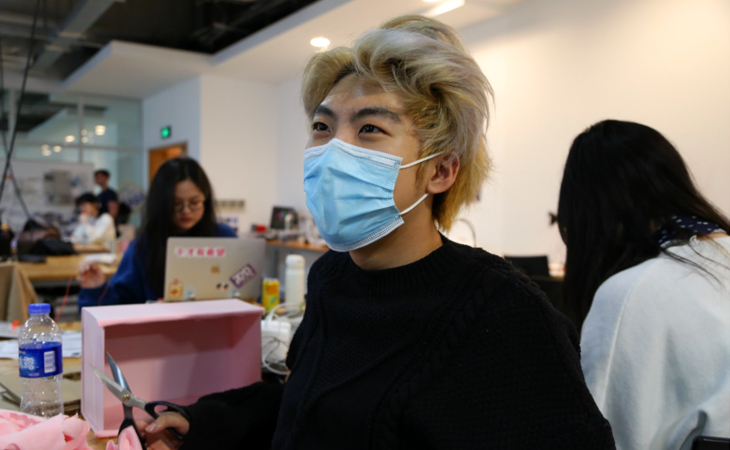
“I completely support this policy, but personally, I sometimes still keep my mask on as a habit.” - Hugo Wang ’23
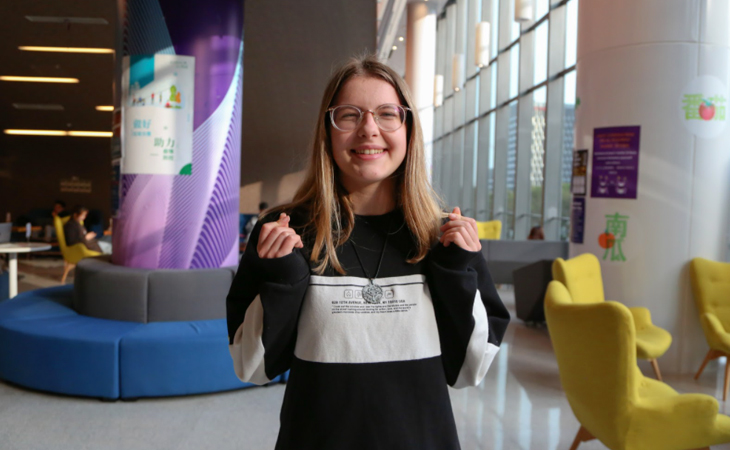
“I think it is safe here, so it’s fine, although I feel like it might make some people careless outside of being here on campus, which I think is not a good thing. But I feel like on campus, it’s okay for the moment. ” - Aline Grobys ’23

